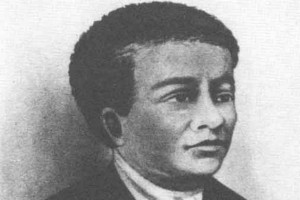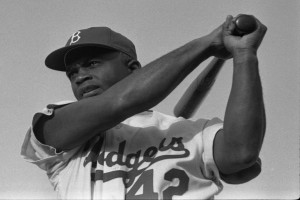Black History Month: Five people with ties to Michigan who made an impact in America
Black History Month is designated to celebrate the freedom and power of black people and to acknowledge their struggle for that freedom since before the Civil War.
Even before the Civil War, Michigan was an active participant in fighting against slavery.
Michigan was a part of the Underground Railroad system and managed to let its population of black people grow as they formed schools and churches in the 1800s.
Of course, during the Civil War there was the division of North and South, and Michigan was a part of the North.
Here are five people that helped changed black history and had some connection to Michigan.
Sojourner Truth

Sojourner Truth
How they correlate to Michigan
Truth was born as a slave in Swartekill, New York.
After being freed and becoming an abolitionist and women’s rights activist, Truth ended up living in Harmonia, Mich., then moving to Battle Creek.
She lived in Battle Creek up to her death, and she changed many lives.
How they are memorable
Truth was known for her speeches on gender inequality, especially her speech, “Ain’t I a woman?”
This speech was given at the Ohio Women’s Rights convention in 1851.
The speech focuses on Truth’s views of how a woman should get the same rights as a man.
“You need not be afraid to give us our rights for fear we will take too much, for we can’t take more than our pint’ll hold,” Truth said, expressing this toward men.
Truth had made many speeches that were recognized as life changing.
She even had the opportunity to meet Abraham Lincoln.
Are they alive?
Truth died Nov. 26, 1883, in Battle Creek.
She is remembered in many ways, like through sculptures, and is recognized as one of the 100 Most Significant Americans.
Malcolm X
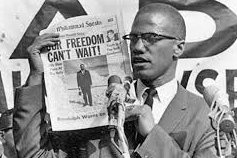
Malcolm Little
How they correlate to Michigan
Malcolm X, or Malcolm Little, was a spokesman for civil rights.
Born in Omaha, Neb., his family moved to Milwaukee, Wisc., and then moved to Lansing, Mich., all in the mid-1920s.
Due to his father’s death and struggles with money, Little was forced to live with another family in Lansing.
Thus, Malcolm got into trouble during his childhood.
It was in the 1960s that he became a part of the Civil Rights Movement.
How they are memorable
“I believe in human beings and that all human beings should be respected as such, regardless of their color,” Little said.
Malcolm X converted to the nation of Islam and was one of the first African-American leaders to express his thoughts on the racial problems in society.
Little focused himself on expressing his views and changing the world’s views.
“You can’t separate peace from freedom because no one can be at peace unless he has his freedom,” Little said.
Are they alive?
Malcolm X was assassinated Feb. 21, 1965, in New York City.
In 1998, “The Autobiography of Malcolm X,” written by Little himself, was named one of the 10 most influential nonfiction books of the 20th century.
Little was also portrayed in movies, plays, and television series, especially the movie named after the man himself.
Ralph Bunche
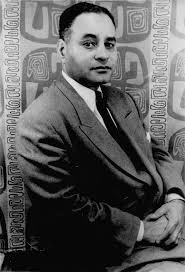
Ralphe Bunche
How they correlate to Michigan
Bunche was born on Aug. 7, 1904, in Detroit.
He and his family lived there until he was 10. His parents decided to move due to poor health.
How they are memorable
Bunche was the first African-American to be awarded the Nobel Peace Prize.
He was awarded this because he helped solve an agreement between the Arabs and Jews in the Israeli-Arab war from 1948 to 1949.
Because of his efforts, there were armistice agreements between Israel , Egypt, Jordan, Lebanon, and Syria.
Not only did he win the Peace Prize, but he was also a political scientist, involved in the administration of the United Nations. He also taught at Howard University for more than two decades.
“The United Nations exists not merely to preserve the peace but also to make change — even radical change — possible without violent upheaval,” Bunche said.
“The United Nations has no vested interest in the status quo,” he said. “It seeks a more secure world, a better world, a world of progress for all peoples. In the dynamic world society which is the objective of the United Nations, all peoples must have equality and equal rights.”
Are they alive?
Bunche died Dec. 9, 1971, in New York City.
He was award for his many achievements and had many buildings named after him like the Ralph J. Bunche Library of the U.S. Department of State, which is the oldest federal government library.
Joe Louis Barrow
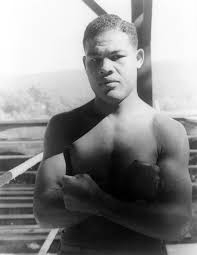
Joe Louis Barrow
How they correlate to Michigan
Louis and his family moved to Detroit in 1926 after being scared out of Alabama by members of the Ku Klux Klan.
Louis worked for Ford Motor Company at the River Rouge plant, and his brother also worked for Ford.
He started boxing after the family moved to Detroit, his first fight being in 1933 when he was just 17.
How they are memorable
Louis was known for his boxing career.
At the end of his amateur career, his record was 50-4 with 43 knockouts.
For his professional career, he only lost three of his 72 fights.
He achieved 57 knockouts and held the world championship from 1937 to 1949, the longest span of any heavyweight titleholder.
Louis had won many fights during The Depression, giving hope to a myriad of people.
Although he gave people hope, simply by boxing, it was not enough for Louis.
“You need a lot of different types of people to make the world better,” Louis said.
Are they alive?
Louis died April 12, 1981, in Paradise, Nev.
He is most remembered by Joe Louis Arena, also called The Joe, where the Detroit Red Wings call their home.
Rosa Parks

Rosa Parks
How they correlate to Michigan
When Parks and her husband were unable to find work due to their legal issues, they were urged by her brother to move to Detroit.
Rosa found a job as a secretary and receptionist in U.S. Representative John Conyer’s congressional office. She also was on the board of the Planned Parenthood Federation of America.
How they are memorable
Parks is most memorable for her refusal to give her seat to a white person on a bus in Montgomery, Ala. This is what caused the loss of jobs and her moving to Detroit.
“My resisting being mistreated on the bus did not begin with that particular arrest …. I did a lot of walking in Montgomery,” Parks said.
Parks helped create the Montgomery Bus Boycott and was an active part of the Civil Rights Movement and the NAACP.
In an interview from National Public Radio in 1992, Parks explained why she stood up by staying seated on the bus.
“I did not want to be mistreated. I did not want to be deprived of a seat that I had paid for. It was just time …. There was opportunity for me to take a stand to express the way I felt about being treated in that manner,” Parks said.
“I had not planned to get arrested. I had plenty to do without having to end up in jail,” she said. “But when I had to face that decision, I didn’t hesitate to do so because I felt that we had endured that too long. The more we gave in, the more we complied with that kind of treatment, the more oppressive it became.”
Are they alive?
Rosa Parks died Oct. 24, 2005, in her home in Detroit.
Parks was awarded the Spingarn Medal, the highest possible by the NAACP, received the Martin Luther King Jr. Award, and was inducted into the Michigan Women’s Hall of Fame.
These are only some of her many achievements.
These five people managed to help change the world, to change to the people around them, and to be remembered in the best of ways.
They fought for what they believed to be right and did it greatly.
As Bunche once said, “Man has but little heeded the advice of the wise men. He has been — fatefully, if not willingly — less virtuous, less constant, less rational, less peaceful than he knows how to be, than he is fully capable of being. He has been led astray from the ways of peace and brotherhood by his addiction to concepts and attitudes of narrow nationalism, racial and religious bigotry, greed and lust for power.”
Society may have been led astray, but there will always be people like these to help us get back to where we need to be.

Class: Senior
Extracurricular Activities: Volunteering, National Honor Society, robotics
Sports: Tennis
Hobbies/Interests: Reading, spending time...

Class: Senior
Extracurricular Activities: Drama Club, Thespian Society, National Honor Society
Sports: Soccer
Hobbies/Interests: Reading, Writing,...

